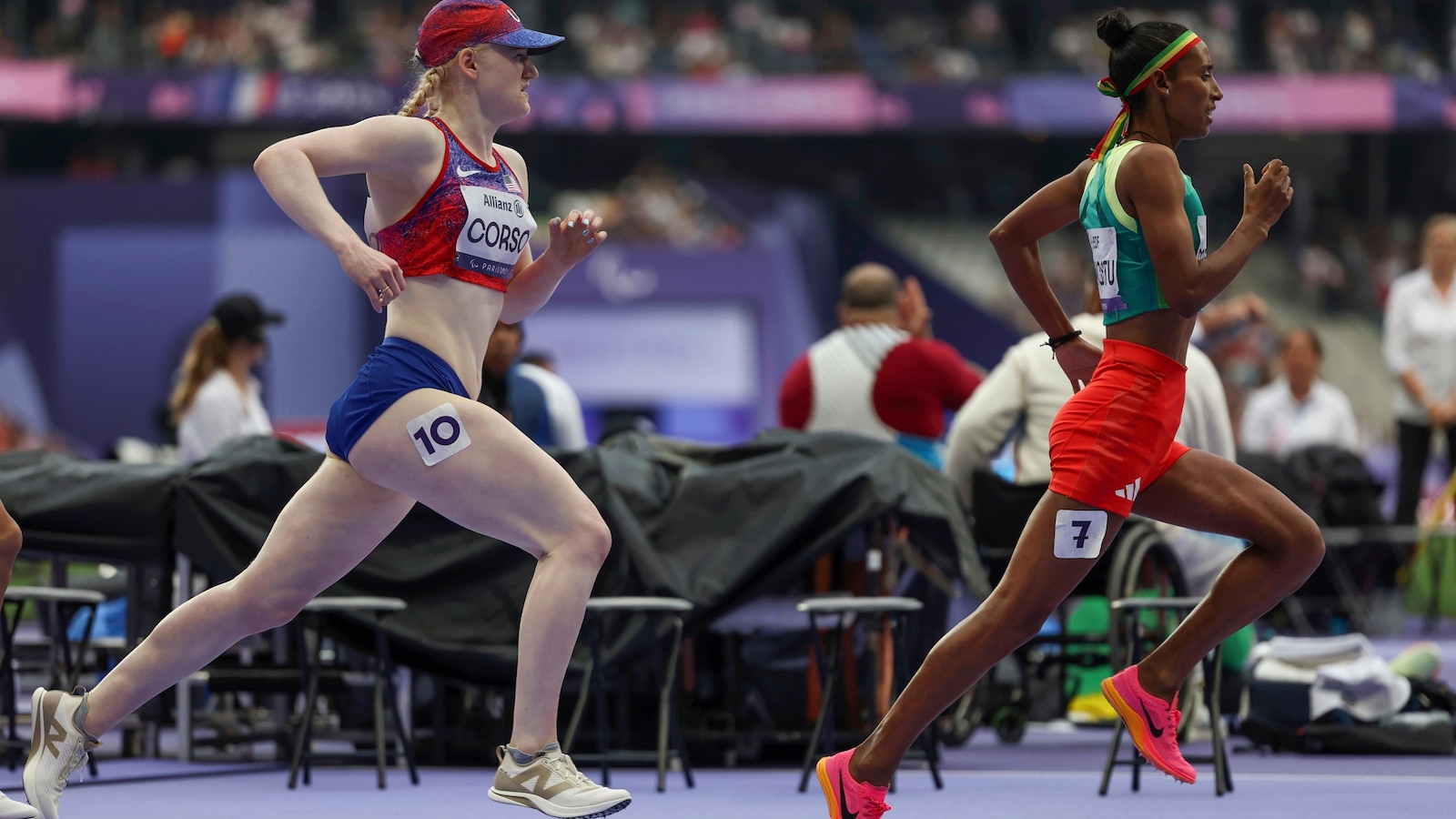PARIS — Team USA runner Liza Corso is leaving Paris with her second Paralympic medal, but is hopeful other rewards are in her near future.
Corso won bronze in the women’s 1,500 meters T13 classification (visual impairment) on Saturday after winning a silver medal at the Tokyo 2020 games. Corso will also continue to chase Paralympic gold while running cross country and track for Lipscomb University in Nashville.
More than half of Corso’s Paralympic teammates have competed collegiately, according to the U.S. Olympic and Paralympic Committee, but she is part of the first generation that can profit off marketing deals while still competing as an NCAA athlete.
Corso’s deals range from smaller sponsorships on social media to partnerships with worldwide brands like Toyota, and, announced earlier this month, Samsung.
“Especially when larger brands are supporting more Paralympic athletes, I think that definitely means a lot to us as athletes, just realizing that they value Paralympic sport is super important,” Corso said.
This is thanks to the NCAA’s 2021 decision to allow athletes to make money from their names, images and likenesses, referred to as NIL. Prior to that, athletes would lose their eligibility for any commercial activity, but the passage of state laws pressured the NCAA into changing its rules. Since then, collegiate athletes have been able to monetize their NIL through brand sponsorships, licensing agreements, product endorsements and other activities.
The total projected market for NIL deals has expanded from $917 million in its first year to a projected $1.67 billion this year, according to an annual report from Opendorse, a prominent NIL deal marketplace.
The new NIL rules took effect less than two months before the last Paralympic games in Tokyo. The NIL market has flourished since then, making the 2024 Paralympics one of the first major brand-building opportunities for collegiate athletes in adaptive sports.
Coming off the Paralympics in 2021, Corso technically was eligible for the endorsement deals as an incoming freshman at Lipscomb. The infrastructure to support NIL was still in development, however, leaving Corso with few opportunities even after her medal-winning performance.
As the NIL market developed with time, Corso also started connecting with brands over social media or through platforms like Opendorse. Corso has deals with Olipop and Firefly Recovery, both achieved without an agent or Team USA’s assistance.
“I would say as the years have gone on that I’ve been in college, there’s been more opportunities, and there’s also been more platforms popping up where brands can reach out to athletes,” Corso said. “That’s been super helpful for just getting athletes connected with brands in general and having more of a structure around it.”
Corso is not alone. Other collegiate Paralympians like USC’s Ezra Frech (track & field), Alabama’s Ixhelt Gonzalez (wheelchair basketball) and Virginia’s Skylar Dahl (rowing) have all benefited from NIL as the Paris games approach.
“I think more brands … are starting to copy other brands in providing NIL opportunities,” Corso said. “I would say it’s definitely more of a known thing than it was three years ago.”
NIL deals often make headlines for massive monetary figures going to superstars such as Iowa basketball player Caitlin Clark, USC quarterback Caleb Williams and LSU basketball player Angel Reese. None of Corso’s deals have approached the million-dollar mark, but her earnings have helped support her through college. Like many Paralympians, Corso’s sponsorships are complementary to a better source of income.
“Nothing that I’ve experienced could fully support me financially,” Corso said. “But I do know that after college, I have a few Team USA teammates who have larger sponsorships and deals that are a larger source of their income.”
NIL has also solved an issue that many Paralympians used to face: ending their college career early to maximize the years they can profit off endorsements. Take former Arkansas sprinter Hunter Woodhall, who won his first Paralympic medals at the Rio games in 2016.
Woodhall was 16 at the time and began building a large social media following but was unable to monetize it once he signed with Arkansas. He left the Arkansas track team months before the 2020 Paralympics with a year of eligibility left so he could monetize his social media following.
“I got so tired of waiting, tired of their hypocrisy,” said Woodhall in a 2021 interview with The New York Times. “It was not worth staying to chase a national title so they could use my name and my story to promote themselves.”
Corso can maximize all her years of NCAA eligibility. The 21-year-old will enter her senior seasons with Lipscomb’s cross country and track teams after Paris, chasing more personal records and national accolades before graduation.
She said she knows how she wants to see the NIL market evolve for Paralympians.
“I’d probably say just continuing opportunities and just a wider variety of brands that are supporting athletes,” she said. “I definitely want to see a more equal opportunity between Olympians and Paralympians. It’s definitely getting better and more in that direction, but I do think that there’s still work that can be done.”
___
Jack Leo is a student in the undergraduate certificate program at the Carmical Institute of Sports Media at the University of Georgia.
___
AP Paralympics: https://apnews.com/hub/paralympic-games

